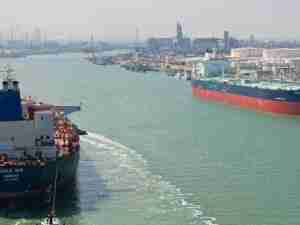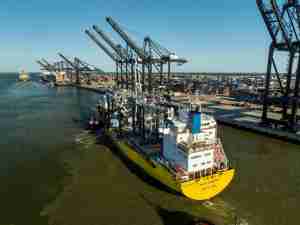AAPA Supports Bi-Partisan ‘Move America’ Bonding, Tax Credits Legislation By Senators Wyden & Hoeven
posted by AJOT | May 04 2015 at 01:37 PM | Ports & Terminals
The American Association of Port Authorities (AAPA)—the unified and recognized voice of seaports in the Americas—publicly voiced support for the bi-partisan Move America Act of 2015 infrastructure bonding and credits legislation introduced today in Congress by Senate Finance Committee Ranking Member Ron Wyden (D-OR) and Senator John Hoeven (R-ND). The Move America proposal would provide more tax-exempt financing for public-private partnerships, along with the option to use federal tax credits to leverage private equity investment in public infrastructure projects, including critically-needed improvements at, and connecting with, with U.S. seaports.
Kurt Nagle, AAPA’s president and CEO, said, “AAPA broadly supports the efforts of Senators Wyden and Hoeven, through the Move America program, to enable greater investments in port-related infrastructure through public-private partnerships. We look forward to working with both senators, and with Congress, to address the issue of crumbling freight transportation infrastructure, which our U.S. member ports recently told us represents a nearly $29 billion funding challenge over the next 10 years.”
Mr. Nagle added, “Ports are incubators for public private partnerships and the combination of tools in this proposal will allow our ports to facilitate and finance projects that might otherwise lay dormant.”
The Move America program is in line with AAPA’s 2015 Freight and Landside Infrastructure policy paper in which the ports association encourages use of alternative financing mechanisms like national and state infrastructure banks, the Transportation Infrastructure Finance and Innovation Act (TIFIA) program, and government bond financing.
Under current law, most types of freight transportation infrastructure improvements that utilize private investments are eligible for tax-exempt financing. However, freight rail and similar intermodal projects that connect ports with the freight network don’t qualify. In the Move America legislation just proposed, tax-exempt financing frequently used by financial markets would be expanded to include intermodal projects, such as those needed at America’s ports. The program would also provide a new vehicle for leveraging private equity investments through the use of federal tax credits.










